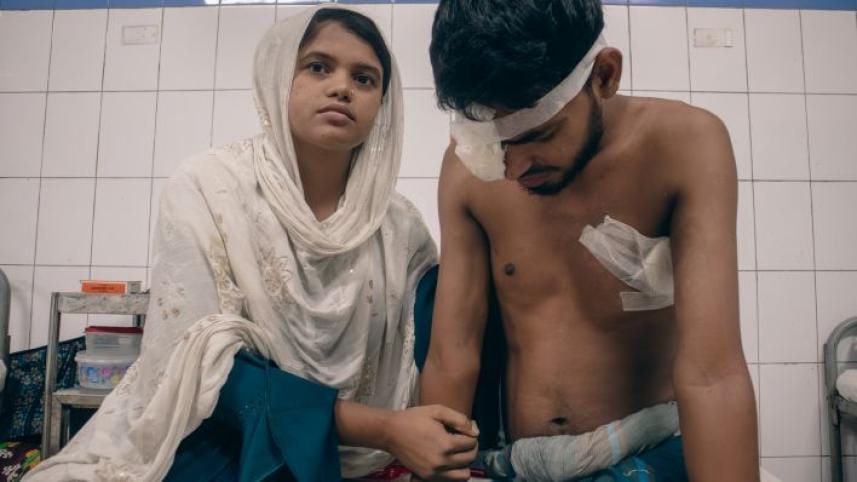Lest we forget the casualties of a revolution

August 5, 2024 is two months behind us. That's a much longer time than between citizens demanding the authoritarian Hasina step down and her actually fleeing. Yet, for many people, July-August 2024 will always shadow their present. Even by the end of August, pretty much all the beds of the ground floor casualty wards at the capital's National Institute of Traumatology and Orthopaedic Rehabilitation (NITOR) were occupied by those injured during the student-led movement. The wards at the National Institute of Opthalmology & Hospital (NIOH), too, were filled with those who had received severe injuries to their eye(s) during the movement.




 For all latest news, follow The Daily Star's Google News channel.
For all latest news, follow The Daily Star's Google News channel.
Comments